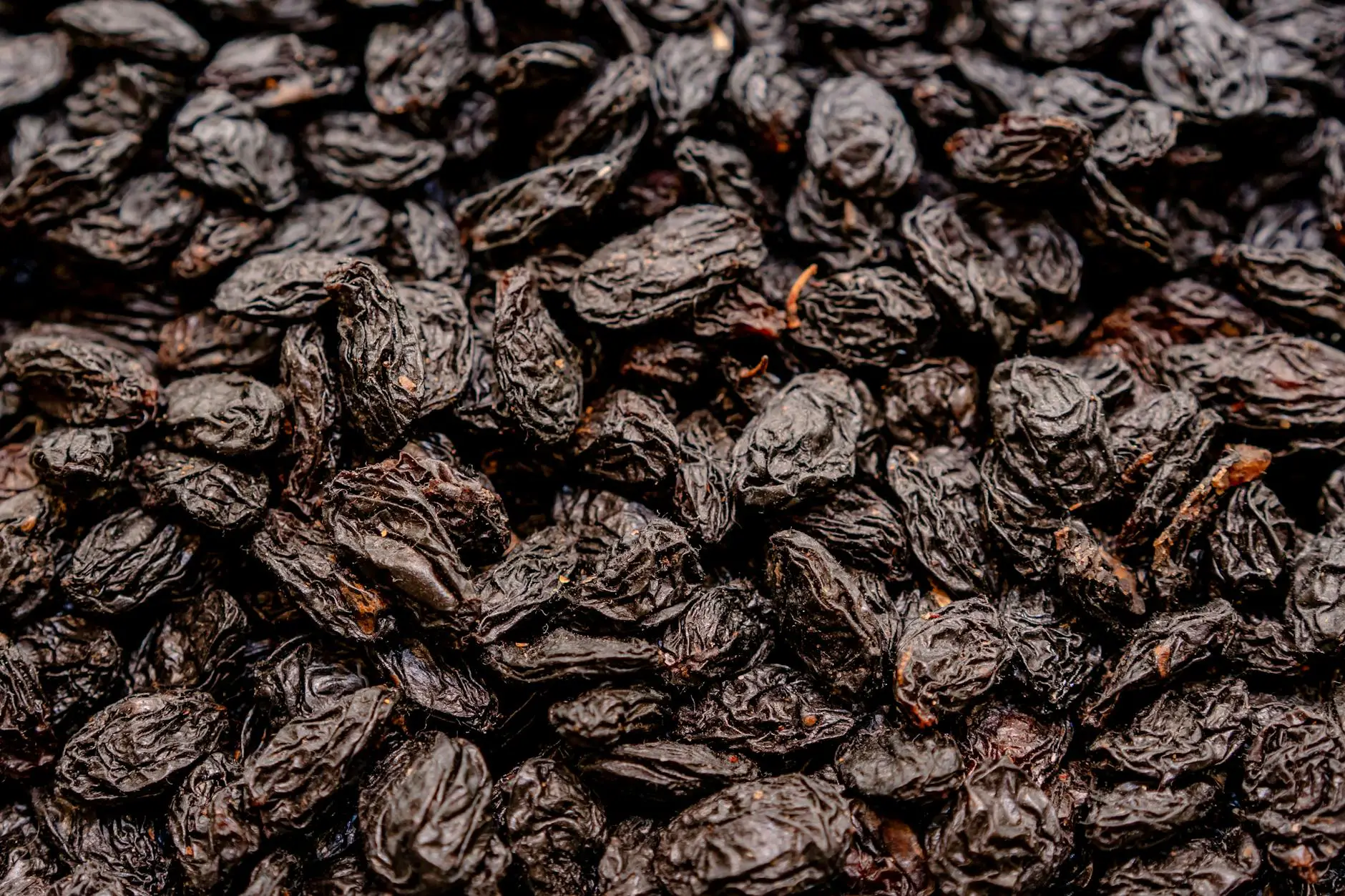Can Dachshunds eat raisins? No, dachshunds, like all dogs, should not eat them as they are highly toxic and very bad for dogs.
Raisins and grapes are highly toxic to dogs and can cause severe kidney damage or even kidney failure. That’s why you shouldn’t feed them to your pet.
Even a small amount can be dangerous, so it’s important to avoid giving any raisins to your dachshund. They are one of the worst foods you can give your dog.
Symptoms of raisin toxicity in dogs can include vomiting, diarrhea, lethargy, and loss of appetite. If your dachshund (or any dog for that matter) ingests raisins, it’s crucial to seek immediate veterinary care.
Always ensure that foods containing raisins or grapes are kept out of reach of your dog to prevent accidental ingestion.
How Toxic Are Raisins To Dogs?
Raisins are extremely toxic to dogs, although the exact reason why they are so harmful is not entirely understood.
Even small amounts of raisins can cause acute kidney failure in dogs. The toxic dose can vary widely among individual dogs; some might eat raisins without immediate apparent effects, while others may become severely ill from a very small amount.
Symptoms of raisin toxicity in dogs can include vomiting, diarrhea, lethargy, abdominal pain, reduced urine outputand kidney failure. These symptoms can develop within hours of ingestion or may take several days to appear.
Because of the unpredictability of the toxic dose and the potential for severe kidney damage, it’s essential to treat any ingestion of raisins as a potential emergency.
If you suspect your dog has eaten raisins, you should contact your veterinarian or an emergency veterinary clinic immediately.
Prompt medical attention can greatly improve the outcome, as early treatment often involves inducing vomiting, administering activated charcoal to absorb toxins and providing supportive care like fluids and monitoring kidney function.
My Dog Ate Raisins But Seems Fine
If your dachshund has eaten raisins and seems fine, it’s still crucial to seek immediate veterinary care.
Raisin toxicity in dogs can be very serious, and symptoms may not appear immediately. The effects can range from mild to severe, including kidney failure, which can be life-threatening.
Here are the steps you should take:
Contact your Veterinarian
Even if your dog appears to be fine, it’s important to contact a veterinarian as soon as possible. Explain the situation, including how many raisins were eaten (if known) and when they were consumed.
Veterinary Intervention
Your vet may advise you to bring your dog in for examination. Treatment often begins with inducing vomiting to remove any undigested raisins from the stomach, followed by administering activated charcoal to reduce absorption of any toxins.
Observation and Supportive Care
Your dog may need to be observed for signs of kidney failure or other complications. This can include blood work to monitor kidney function and intravenous fluids to support kidney health and prevent dehydration.
Monitor at Home
If your dog is sent home, you’ll need to monitor for any signs of illness, such as vomiting, diarrhea, lethargy, lack of appetite, or changes in water consumption and urination. Any changes should be reported to your veterinarian immediately.
Even if a dog initially appears fine after eating raisins, there’s no way to predict how severely they may be affected. Early veterinary intervention can greatly increase the chances of a good outcome.
What Is Raisin Poisoning in Dogs?
Raisin poisoning in dogs refers to the toxic reaction that occurs when a dog ingests raisins.
Raisins, along with grapes, are known to be highly toxic to dogs, although the exact substance that causes this toxicity is still unknown.
This condition can lead to acute (sudden) kidney failure, which is a serious and potentially life-threatening issue.
Key Aspects of Raisin Poisoning in Dogs
Symptoms
The symptoms of raisin poisoning can vary but often include vomiting, diarrhea, lethargy, abdominal pain, loss of appetite, and signs of kidney failure like decreased urine output. Symptoms can occur within hours of ingestion or may take several days to manifest.
Severity of Toxicity
The amount of raisins that can cause poisoning differs from dog to dog. Some dogs might be affected by ingesting a very small number of raisins, while others may tolerate a larger amount without immediate apparent effects. However, it’s important to note that there’s no safe quantity of raisins for any dog.
Mechanism of Toxicity
The specific toxin in raisins that causes the adverse effects in dogs is not clearly identified. This unknown factor makes it difficult to predict which dogs will be affected and to what degree.
Diagnosis and Treatment
Diagnosis is typically based on the history of raisin ingestion and the presenting symptoms. Blood tests are often performed to assess kidney function.
Treatment is focused on preventing the absorption of toxins, typically through inducing vomiting, administering activated charcoal, and providing supportive care such as intravenous fluids. The goal is to protect the kidneys and support their function.
Prognosis
The prognosis depends on the amount of raisins ingested, the timeliness and effectiveness of treatment, and how the individual dog responds. Early and aggressive treatment can improve the chances of a good outcome.

